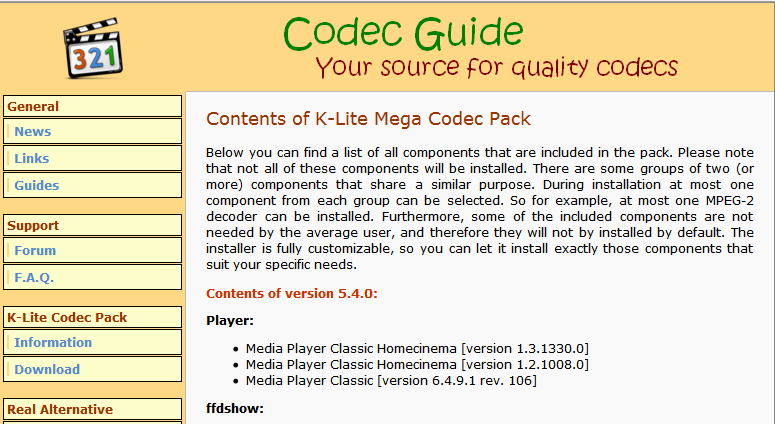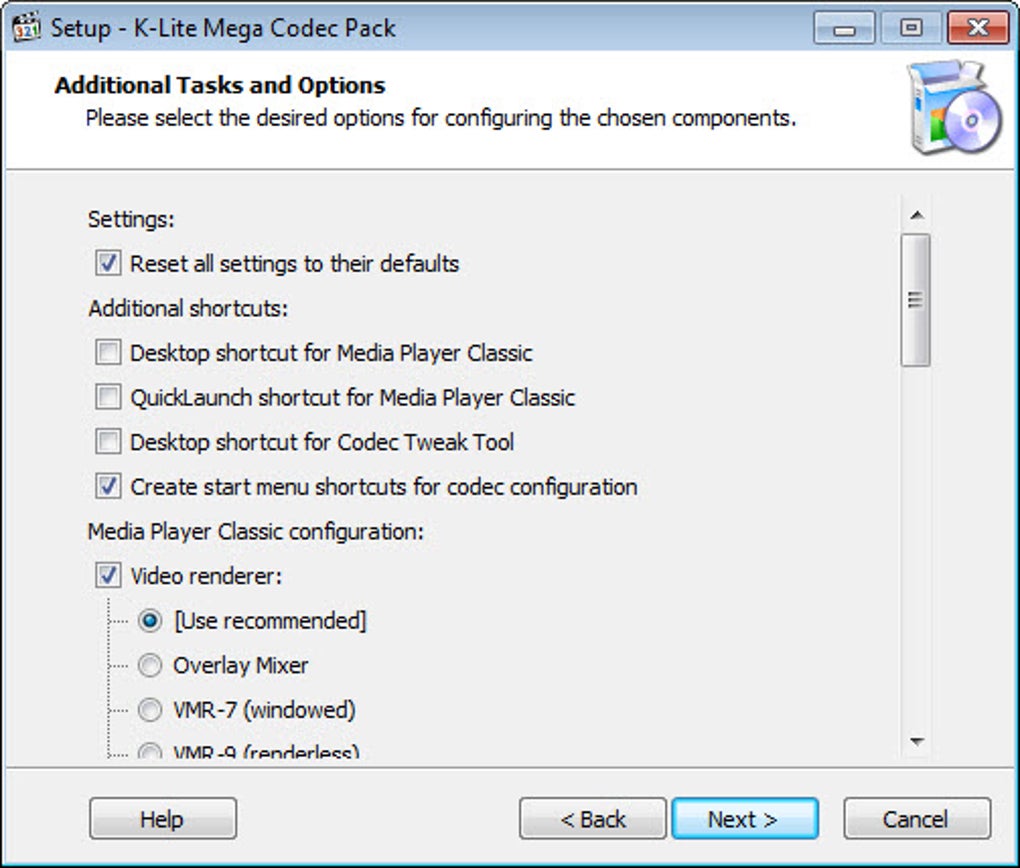
- #Codec pack for mac 2013 for mac os x#
- #Codec pack for mac 2013 for mac os#
- #Codec pack for mac 2013 for mac#
- #Codec pack for mac 2013 mac os x#
- #Codec pack for mac 2013 mac os#
#Codec pack for mac 2013 for mac#
Office 2008 is the only version of Office for Mac supplied as a Universal Binary. Office 2008 was originally slated for release in the second half of 2007 however, it was delayed until January 2008, purportedly to allow time to fix lingering bugs.

Microsoft stopped supporting Office 2008 on April 9, 2013. Office 2008 is also the last version to feature Entourage, which was replaced by Outlook in Office 2011.
#Codec pack for mac 2013 mac os#
Office 2008 was followed by Microsoft Office for Mac 2011 released on October 26, 2010, requiring a Mac with an Intel processor and Mac OS version 10.5 or better. Office 2008 was developed by Microsoft's Macintosh Business Unit and released on January 15, 2008.
#Codec pack for mac 2013 mac os x#
It supersedes Office 2004 for Mac (which did not have Intel native code) and is the Mac OS X equivalent of Office 2007.
#Codec pack for mac 2013 for mac os#
Microsoft Office 2008 for Mac is a version of the Microsoft Office productivity suite for Mac OS X. Unofficially runs on PowerPC G3 Macs (like the iMac G3 in Bondi Blue) and with less RAM You don’t need a vivid imagination to see the scenario repeating itself in the future./mac /products /Office2008 /default. Big gives you the greenlight for a full-scale campaign. You come back to him a few weeks later with statistical analysis showing that users on the alternative platform, in this case OS X, fall for the scam and the fraudulent fees thereby generated are substantial. You tell him the cost of adapting a proven Windows attack to target an alternative platform is relatively low. Here’s one way to look at what is going on here: Imagine you are an aspiring cyber-criminal.

In other words, most malware campaigns are not mounted unless somebody thinks there is money to be made, with a low probability of getting caught. With the exception of malware designed for political or hobby-activist purposes, all malware development is driven by fairly straightforward risk-benefit, return-on-investment analysis. If there is a way to make money from attacking Macs, you can bet someone will try it. And while we cannot predict the future, we can predict the outcome of economic calculations. What does this Mac malware mean?Īn infection technique and criminal scheme that was previously found to be successful against Windows users is being tried against Mac users. Note that CNET is today reporting that Apple has released updated XProtect malware definitions to protect against this bogus Yontoo (identified as “”). The misbehaving plug-in files for “Yonto” that you want to remove are: Yontoo.safariextz, YontooFFClient.xpi and YontooLayers.crx. If I go to the Finder and delete that file from the Library > Internet Plug-ins folder on my hard drive, it will be removed from all browsers. For example, the Amazon MP3 Downloader that I use in Google Chrome on my Mac is the file ugin. You can use this list to find the actual file name of all plug-ins, for all browsers. For example, here’s how you check via Safari: If you do get unwanted ads and think you might be affected, you can check your browser’s plug-ins. If you are using ESET to protect your Mac, it will block this infection process, and it has been blocking it on Windows machines for some time (detected as OSX/Adware.Yontoo and Win32/Adware.Yontoo respectively). The point is, criminals are using this plug-in to cheat online advertisers out of money by redirecting victims to sites that pay for traffic or clicks. There are also reports of infection via phoney media players. If you fall for this, a wealth of unwanted ads and redirections will likely follow, injected into pages on otherwise innocent sites. The end result is the unauthorized installation of a Web plug-in or extension called “Yontoo” that will run in the popular browsers on the Mac, like Safari, Chrome, and Firefox. Which is why some people have been clicking the Download link or the blue “Install codec pack” button. While there are some red flags here, like the trademark and the fact that it says Windows not OS X, it otherwise appears to be a legitimate page. The user, eager to watch the video, is told that the HD video codec is missing, but all they need to do is click where it says “Install HD video codec.” Do NOT do this! If you do, here is what comes next: If you click Play on an infected website you will see something like this:

Mac users need to stay alert when clicking around for movie trailers because a well-tried malware ploy has been adapted from Windows to target Apple OS X, tricking users into downloading a new codec to watch a movie trailer.
#Codec pack for mac 2013 for mac os x#
Protection and remediation tips for Mac OS X users targeted by a Trojan adware plugin called Yontoo hidden behind movie trailer and other media playing links, generating money for criminals exploiting online ad schemes.


 0 kommentar(er)
0 kommentar(er)
